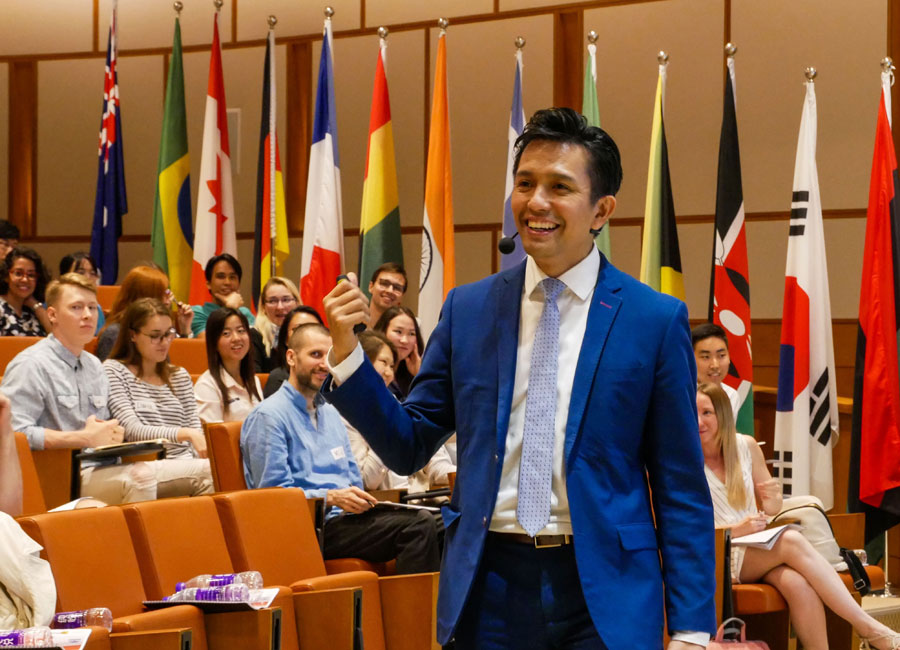For foreign graduates, a working solution


Overseas students struggle to find paid employment in China, but new regulations and a nonprofit group aim to change that. Zhang Yangfei reports.
Prisca Kyalisiima refreshed her email inbox and began scanning the most recent messages. None of them were what she had been waiting for: A response to her application to the World Bank's office in Beijing.
Her sent folder was filled with email applications for various jobs, each including a cover letter and tailored resume.
Last month, the 27-year-old Ugandan started her sophomore year as a PhD candidate in finance at Beijing's University of International Business and Economics. She needs to attend lectures only two days a week, and she is desperate to land part-time work or an internship to use the rest of her time productively. But her job search has stalled.
"I'm a very hardworking person. I'm used to working, not sitting and being idle," she said. "I really want to work at one of the Chinese banks and see how they do things, because I know China is well-known for advanced technology.
"This is one thing I'd feel really sorry about if I leave China without having that experience. It's one of my big dreams."
She is not alone in her frustration. Foreign students have long complained about the difficulties of finding work in China, before or after graduation. It is a problem local and central authorities are trying to solve by tweaking visa and employment regulations.
Some graduates in Beijing have also taken action into their own hands by setting up a group that offers advice and training to overseas students looking for work in China.
Foreign students offer a range of possible reasons why they might struggle in the Chinese market.
However, the most common reason students give is the fierce competition.
Official statistics show 7.95 million university students graduated in 2017. In Beijing alone, more than 230,000 graduates poured into the job market.
Ossian Heulin from France, who is working toward a master's in industrial engineering and automation at Beihang University in Beijing, said the sheer weight of applications for jobs and internships at major companies mean it is hard for foreign students to stand out.
Although they come across as more outgoing, self-confident and creative, they do not have much more on their Chinese counterparts than perhaps fluency in another language, the 23-year-old said.
"Chinese now have most of the skills needed for any part-time job, and the government is welcoming elite workers, those who actually bring high value you can't find in China, so young professionals who are just studying and don't have any expertise do not generate much interest," he added.
Universities do offer career advice and other support for international students, but services are far more limited compared with those for Chinese, while the language barrier remains a big hurdle for job seekers.
"I think the willingness of universities to help international students still needs to be improved," Heulin said. "It's a need that is being felt by all the people I know and have worked with."
























